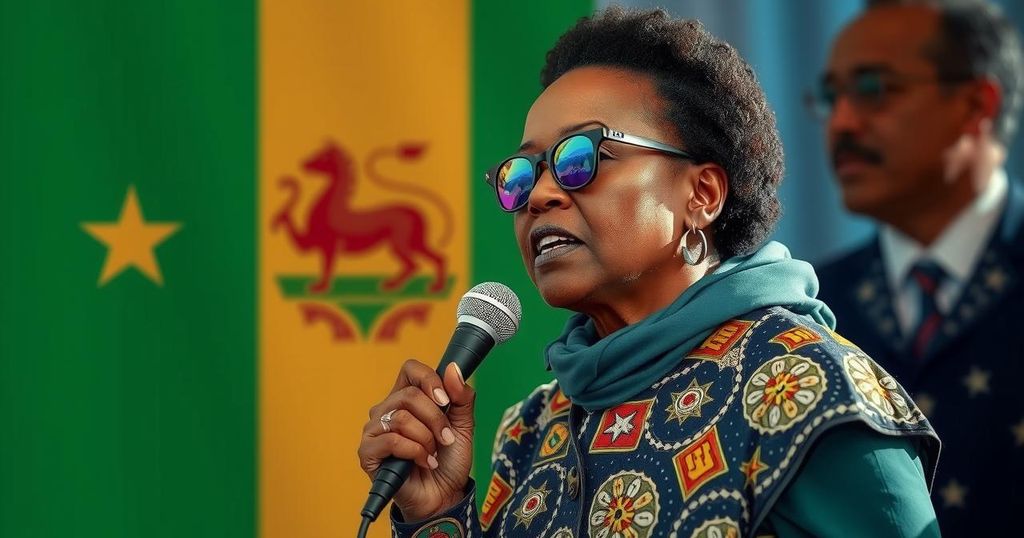Namibia is on the brink of possibly electing its first female president in Vice President Netumbo Nandi-Ndaitwah during the upcoming elections. Approximately 1.4 million people are registered to vote, amid significant political challenges faced by the ruling SWAPO party. Analysts stress the importance of engaging younger voters and addressing pressing socio-economic issues, including unemployment and women’s rights. Nandi-Ndaitwah’s potential presidency would mark a significant milestone for gender representation in the nation.
Namibia is poised to potentially elect its first female president in the imminent elections, with Vice President Netumbo Nandi-Ndaitwah as the leading candidate representing the ruling South West Africa People’s Organization (SWAPO). With approximately 1.4 million of Namibia’s citizens registered to vote, Nandi-Ndaitwah aims to rally support amid past electoral setbacks for SWAPO. Political analysts emphasize that attracting younger voters and addressing their priorities, such as job creation, are crucial for success. Nandi-Ndaitwah’s ambitious platform includes job creation measures targeting the notable 20% youth unemployment rate, alongside a commitment to addressing women’s issues, should she be elected president. Her victory would mirror the accomplishments of other women in leadership roles across Africa and signifies an important milestone for gender representation in Namibian politics. Political competitors vying for influence include the Independent Patriots for Change and the Affirmative Repositioning party, marking a significant electoral landscape filled with change across Southern Africa.
The upcoming presidential elections in Namibia may mark a historic moment as it possibly elects its first female president. Netumbo Nandi-Ndaitwah, the sitting Vice President and member of the ruling party SWAPO, is positioned as a frontrunner in this pivotal election moment. Following a noteworthy decline in SWAPO’s electoral support in recent years, particularly after losing its two-thirds majority in the National Assembly in 2019, the party is keen to rejuvenate its appeal, especially to younger voters disconnected from its historical narratives. The recent political climate in Southern Africa has been turbulent, with significant shifts in leadership, influencing the overall potential for change in Namibia’s current governance framework.
The election of Namibia’s first female president could represent a watershed moment for the country, particularly for women’s political representation. With high stakes ahead of the elections, there is pressure for Netumbo Nandi-Ndaitwah to fulfill campaign promises, attract younger voters, and confront socio-economic challenges. The outcome of this election not only affects Namibia but could also signal changes within Southern Africa, reflecting a broader trend of shifting political dynamics in the region.
Original Source: apnews.com






